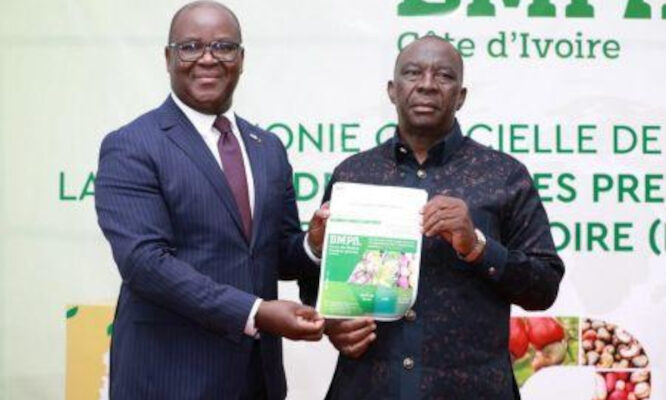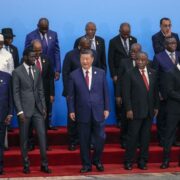
(Ecofin Agency) – • Côte d’Ivoire inaugurates the BMPA in Abidjan with cashews, corn, and kola nuts as initial listings.
• The platform replaces over-the-counter trading with a regulated, electronic system to improve transparency and boost food sovereignty.
• Backed by the BRVM since 2018, the BMPA is the first commodities exchange in both Côte d’Ivoire and the WAEMU.
Seven years after its announcement, Côte d’Ivoire’s Agricultural Commodities Exchange (BMPA) officially launched its operations on May 28 in Abidjan. This platform marks the advent of a new phase in the structuring of the national agricultural market.
The initial trading session began with the listing of three agricultural products, cashews, corn, and kola nuts, selected due to their strategic importance to the national economy. The country currently grows 1,050,000 tons of raw cashews and 250,000 tons of kola nuts annually, making it the world’s leading producer for both commodities. Meanwhile, corn plays a central role in the country’s food sovereignty, with other commodities like rubber, cocoa, and palm oil potentially traded on this exchange in the future.
The BMPA replaces direct over-the-counter trading between buyers and sellers with a transparently priced agricultural commodities market, regulated by supply and demand. It becomes the first Agricultural Commodities Exchange in Côte d’Ivoire and the West African Economic and Monetary Union (WAEMU).
The BMPA employs an electronic quoting model with a certified warehousing system overseen by the Warehouse Receipt Regulatory Authority (ARRE). Three initial Agricultural Products Brokers (CPA), West Africa Commodities Market, Raw Material Trading, and African Commodities Brokerage House—have been authorized to operate on this new platform. The National Investment Bank (BNI) has been accredited as the Agricultural Settlement Bank (BRA), responsible for ensuring the smoothness and security of financial transactions.
Participants in the BMPA include agricultural commodity producers, agricultural cooperatives and professional organizations, and agro-industrials. Market intermediaries are dealers, local and international buyers, exporters, and investors (derivative traders, speculators).
The launch aims to improve price transparency, boost the marketing of agricultural commodities, and ensure a better income for Ivorian farmers. It will also reduce dependency on international markets for agricultural price setting, such as those in London or Kuala Lumpur, according to authorities. As part of a broader structural transformation strategy for the Ivorian agricultural sector, the exchange is expected to aid local producers in understanding price mechanisms and fully integrating them into the quoting system.
The project to create an agricultural commodity market started in 2018 with technical support from the Regional Securities Exchange (BRVM). There are approximately 15 agricultural commodity exchanges in Africa, including those in Ethiopia, Rwanda, and Kenya, out of a global total of 125. South Africa’s exchange is the continent’s largest, with a volume of $81.7 billion.
Despite the progress, the volatility of food prices remains a problem in the region. Commodity exchanges confront challenges such as lack of regulatory frameworks, inadequate infrastructure, limited access to finance, and low stakeholder awareness.










Comments